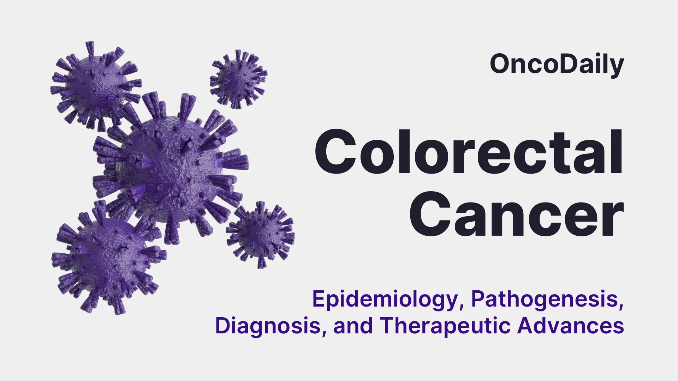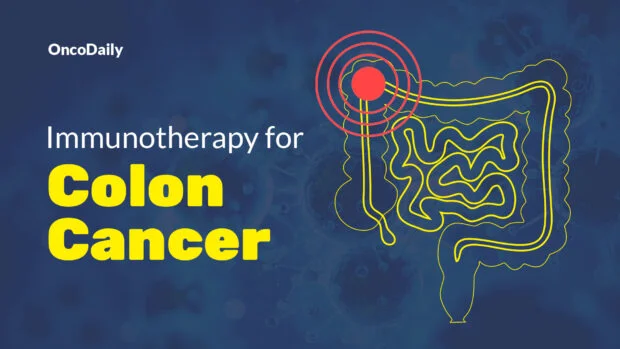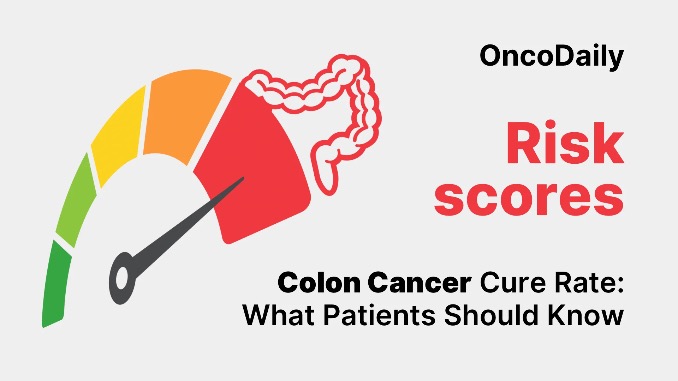Colon cancer is one of the most common cancers worldwide, and advances in treatment have significantly improved outcomes for many patients. Among the most important developments in recent years has been the use of immunotherapy, which harnesses the body’s immune system to target and destroy cancer cells. Unlike chemotherapy, which attacks rapidly dividing cells indiscriminately, immunotherapy specifically modulates immune pathways, making it a more targeted approach. Patients and families often ask: what is the success rates of immunotherapy for colon cancer ? The answer depends on tumor biology, treatment context, and the type of immunotherapy being used.

Read About Colorectal Cancer on OncoDaily
The Role of Immunotherapy in Colon Cancer
Immunotherapy has become a standard of care for certain patients with colorectal cancer, particularly those whose tumors have microsatellite instability-high (MSI-H) or deficient mismatch repair (dMMR) status. These tumors have a high number of genetic mutations, which make them more visible to the immune system. In contrast, the majority of colon cancers are microsatellite stable (MSS) or proficient mismatch repair (pMMR), and these respond much less effectively to current immunotherapy agents.
Checkpoint inhibitors—such as pembrolizumab and nivolumab—are the most widely studied immunotherapies in colon cancer. They work by blocking the PD-1/PD-L1 pathway, which tumors often use to evade immune attack.

Read About Immunotherapy for Colon Cancer on OncoDaily
Success Rates in MSI-H/dMMR Colon Cancer
The greatest advances in immunotherapy for colon cancer have been in patients with MSI-H or dMMR disease. Data from the landmark KEYNOTE-177 trial demonstrated that pembrolizumab was superior to chemotherapy in the first-line setting for patients with metastatic MSI-H/dMMR colorectal cancer. At a median follow-up of over 44 months, pembrolizumab achieved a median progression-free survival (PFS) of 16.5 months compared to 8.2 months with chemotherapy, and nearly 45% of patients were progression-free at two years, a rate far higher than historically seen with chemotherapy (André et al., 2020).
Similarly, the CheckMate 142 trial evaluated nivolumab, alone or in combination with ipilimumab, in pretreated MSI-H/dMMR colorectal cancer. Results showed objective response rates (ORR) of approximately 31% with nivolumab monotherapy and 55% with nivolumab plus ipilimumab, with durable responses often lasting several years (Overman et al., 2018). Some patients remain in long-term remission, raising the possibility of cure for a subset.
Overall, the success rate of immunotherapy in MSI-H/dMMR colon cancer is high compared with chemotherapy, offering durable responses and significantly improved quality of life.
Limited Benefit in MSS/pMMR Colon Cancer
Unfortunately, the majority of colon cancer patients—about 85%—have MSS/pMMR tumors. These cancers tend not to respond well to checkpoint inhibitors. Trials testing pembrolizumab, nivolumab, and atezolizumab in this group have shown low response rates, often below 5% (Le et al., 2015). The reason lies in the biology of MSS tumors, which have fewer mutations and therefore provide fewer “flags” for the immune system to recognize.
Researchers are actively investigating strategies to improve outcomes for MSS colon cancer, such as combining immunotherapy with chemotherapy, targeted therapy, or radiation to increase immune visibility. Clinical trials remain the best avenue of access for these patients, as routine use of checkpoint inhibitors is not currently recommended for MSS disease.
Immunotherapy in Early-Stage Colon Cancer
Another area of research is the use of immunotherapy in early-stage colon cancer. Preliminary studies suggest that neoadjuvant immunotherapy—using checkpoint inhibitors before surgery—may induce significant tumor regression in MSI-H/dMMR tumors. The NICHE-2 study reported that nearly all patients treated with neoadjuvant immunotherapy achieved a major pathological response, and many had complete eradication of cancer cells in the surgical specimen (Chalabi et al., 2022). These results suggest immunotherapy may eventually play a role not only in metastatic disease but also in curative-intent treatment.
Factors Influencing Success Rates
Several factors affect how successful immunotherapy can be in colon cancer:
- Molecular profile: MSI-H/dMMR tumors respond far better than MSS/pMMR tumors.
- Treatment timing: First-line use of immunotherapy in advanced disease provides the best outcomes.
- Combination approaches: Dual checkpoint blockade (e.g., nivolumab plus ipilimumab) may improve response rates in select patients.
- Patient health and immune function: Outcomes vary based on age, comorbidities, and general performance status.

Read About Colon Cancer Cure Rate on OncoDaily
Side Effects and Safety
While immunotherapy is often better tolerated than chemotherapy, it can cause immune-related adverse events. These occur when the immune system attacks normal organs, leading to colitis, hepatitis, pneumonitis, or endocrinopathies. Most side effects can be managed with steroids or immunosuppressive therapy, but close monitoring is required. Despite these risks, the safety profile of checkpoint inhibitors is generally favorable compared with traditional chemotherapy.
What Patients Should Know
For patients with MSI-H/dMMR colon cancer, immunotherapy represents a highly effective treatment, with response rates ranging from 30% to over 55% and durable remissions that can last years. Some patients may even achieve long-term survival beyond five years, an outcome rarely seen with chemotherapy alone.
For patients with MSS/pMMR colon cancer, immunotherapy success rates are currently low, but ongoing clinical trials are exploring ways to make these tumors more responsive. Enrolling in a trial may provide access to cutting-edge therapies.
Ultimately, the success rate of immunotherapy for colon cancer depends heavily on the tumor’s molecular makeup. For this reason, all patients with advanced colon cancer should undergo MMR/MSI testing to determine eligibility for immunotherapy.
Conclusion
Immunotherapy has transformed the treatment landscape for colon cancer, particularly for those with MSI-H/dMMR tumors. Clinical trials such as KEYNOTE-177 and CheckMate 142 have demonstrated durable responses and improved progression-free survival compared with chemotherapy, with some patients achieving long-term remission. For MSS tumors, success rates remain limited, though ongoing research may change this in the near future.
For patients, the key message is clear: the success rate of immunotherapy in colon cancer depends on molecular testing, and understanding your tumor profile is the first step toward personalized, effective treatment.
You Can Watch More on OncoDaily Youtube TV
Written by Armen Gevorgyan, MD
